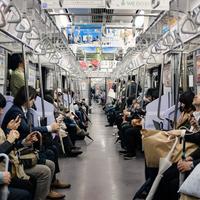がん に なった 若い 世代 の 78%が 女性
|||わかい|せだい|||じょせい
cancer|||young|generation|||woman
78% of young people who get cancer are women
がん に なった 若い 世代 の 78% が 女性
|||わかい|せだい|||じょせい
cancer|||young|generation|||
78% of young people who have cancer are women
78% młodych ludzi chorych na raka to kobiety
15 歳 から 39 歳 まで の 若い 世代 は 、 ほか の 世代 と 比べる と 、 がん に なる 人 が 少ない です 。
さい||さい|||わかい|せだい||||せだい||くらべる|||||じん||すくない|
years|from||||young|generation||||generation||compared to||cancer||become|||few|
The younger generation, between the ages of 15 and 39, has fewer people getting cancer than other generations.
Młodsza grupa wiekowa między 15 a 39 rokiem życia jest mniej narażona na raka niż inne pokolenia.
この ため 、 がん の 診療 を する 病院 や 、 がん に なった とき の 支援 が 少ない と 言われて います 。
||||しんりょう|||びょういん|||||||しえん||すくない||いわ れて|い ます
this||cancer||medical care|||hospital||cancer||became|||support||not much||it is said|
For this reason, it is said that there is little support for cancer treatment in hospitals and cancer.
Z tego powodu mówi się, że wsparcie szpitali zapewniających leczenie raka jest niewielkie.
国立 成育 医療 研究 センター と 国立 がん 研究 センター は 、2016 年 と 2017 年 、 約 800 の 病院 など で がん だ と わかった 若い 世代 に ついて 調べました 。
こくりつ|せいいく|いりょう|けんきゅう|せんたー||こくりつ||けんきゅう|せんたー||とし||とし|やく||びょういん|||||||わかい|せだい|||しらべ ました
national|child-rearing|medical|research|||national|cancer||center|||||approximately||hospital|||cancer|||understood||young generation||about|investigated
In 2016 and 2017, the National Center for Child Health and Development and the National Cancer Research Center surveyed about 800 hospitals and other young people who found cancer.
Narodowe Centrum Zdrowia i Rozwoju Dziecka oraz Narodowe Centrum Onkologii zbadały młodsze pokolenia, u których stwierdzono raka w około 800 szpitalach w 2016 i 2017 r.
がん だ と わかった 5万7788 人 の 78% は 女性 でした 。
||||よろず|じん|||じょせい|
cancer|||understood|||||woman|
Of the 57,788 people who were diagnosed with cancer, 78% were women.
Z 57 788 osób, które wykryły raka, 78% stanowiły kobiety.
もっと 年齢 が 上 の 世代 は 、 男性 の ほう が 多く なって います 。
|ねんれい||うえ||せだい||だんせい||||おおく||い ます
|age||||generation||man||||more||
In the older generation, there are more men than men.
Starsze pokolenia są bardziej męskie.
20 歳 から 39 歳 まで の がん だ と わかった 女性 の 35% が 、 できて すぐ の 子宮 頸 がん や 乳 がん でした 。
さい||さい|||||||じょせい||||||しきゅう|けい|||ちち||
|||||cancer||quotation particle|understood||||developed|||uterus|cervix|||breast||
35% of women known to have cancer between the ages of 20 and 39 had cervical or breast cancer as soon as possible.
Trzydzieści pięć procent kobiet, u których stwierdzono raka między 20 a 39 rokiem życia, miało raka szyjki macicy i raka piersi tak szybko, jak to możliwe.
国立 成育 医療 研究 センター は 「 若い 世代 の 女性 は 、 仕事 や 結婚 や 出産 で 忙しい 人 が 多い ため 、 がん の 診療 に 支援 が 必要です 」 と 話して います 。
こくりつ|せいいく|いりょう|けんきゅう|せんたー||わかい|せだい||じょせい||しごと||けっこん||しゅっさん||いそがしい|じん||おおい||||しんりょう||しえん||ひつようです||はなして|い ます
national||medical|research||||generation||||work||marriage||childbirth||busy|||||cancer||medical care||support||support is needed|||exists
Narodowe Centrum Zdrowia i Rozwoju Dziecka mówi: „Jest wiele młodych kobiet, które są zajęte pracą, małżeństwem i porodem, dlatego potrzebują wsparcia w leczeniu raka”.

